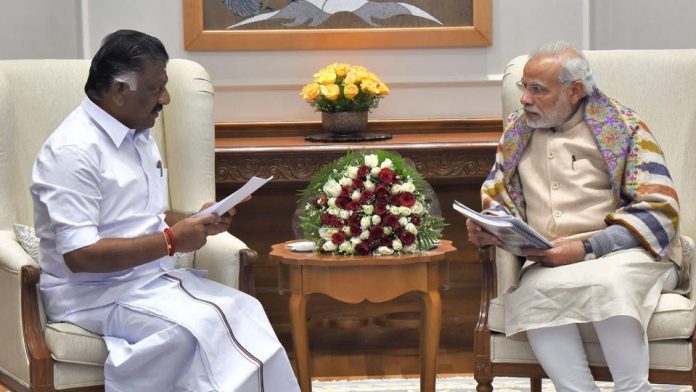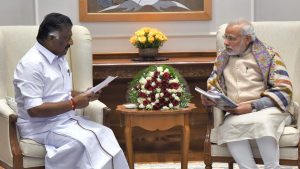After a three year long ban, Jallikattu has finally got the approval of the Centre to be held across Tamil Nadu. The Centre gave nod to the ordinance on Jallikattu on January 20, 2017 to allow the bull-taming sport to be held in Tamil Nadu and end the protests that had erupted in the state with the ban.
Key Fact
Tamil Nadu Chief Minister, O. Paneerselvam has send a draft ordinance to the centre seeking an amendment to the Prevention of Cruelty to Animals Act, 1960 and removal of “bull” from the list of “performing” animals. This will ensure that provisions of the Prevention of Cruelty to Animals Act will not apply to the bull.
- The ordinance has been prepared with a view to ensuring survival and well-being of the native breed of bulls and preserving cultural traditions of Tamil Nadu.
- As per the rules of business of the Tamil Nadu government, the Cabinet nod is not required for an ordinance. The approval of the concerned Minister and Chief Minister is sufficient and the state government had completed all these formalities in case of Jallikattu to pass an ordinance after which the proposal was submitted to the Centre.
- Chief Minister O. Paneerselvam met Prime Minister Narendra Modi on January 19, 2017 to seek help over the Jallikattu issue. Seeking the assurance from PM to State Chief Minister, the Union Ministries of Culture, Law, Home Affairs and Environment and Forests cleared the State’s proposal for the ordinance.

- The draft ordinance also received the nod of the President via Home Ministry, as the powers of the President have been delegated to Union Home Minister for giving approval on such ordinance.
- Further, the Tamil Nadu Governor Vidyasagar Rao approved the ordinance by the state government on January 21, 2017 with the first Jallikattu game post the protest to be conducted in Alanganallur, Madurai on January 22, 2017.
- The Decision comes as Tamil Nadu came to a halt with protests by students, youths and other sections demanding immediate allowance of the traditional sport in the state. General strikes by various trade unions led to a shutdown of shops and business and schools and colleges remaining closed across the state.
- Film shootings were suspended. Autos and call taxis kept off the roads with only few government buses on the roads. Banking operations were affected. Many inter and intra-state trains were fully and partially cancelled while some others were diverted. The suburban EMU services ran late.
About Jallikattu
Jallikattu is a traditional sport of Tamil Nadu in which a bull, commonly of the Kangayam breed, is released into a crowd of people.
- Multiple human participants attempt to grab the large hump of the bull with both arms and hang on to it while the bull attempts to escape.
- Participants hold the hump for as long as possible, attempting to bring the bull to a stop. In some cases, participants must ride long enough to remove flags on the bull’s horns.
- It is typically practiced in the Indian state of Tamil Nadu as a part of Pongal celebrations on Mattu Pongal day.
- In May 2014, the Supreme Court of India banned the practice, citing animal welfare issues. On 8 January 2016, the Government of India passed an order exempting Jallikattu from all performances where bulls cannot be used, effectively reversing the ban. However, on 14 January 2016, the Supreme Court of India upheld its ban on the event, leading to protests all over Tamil Nadu.






